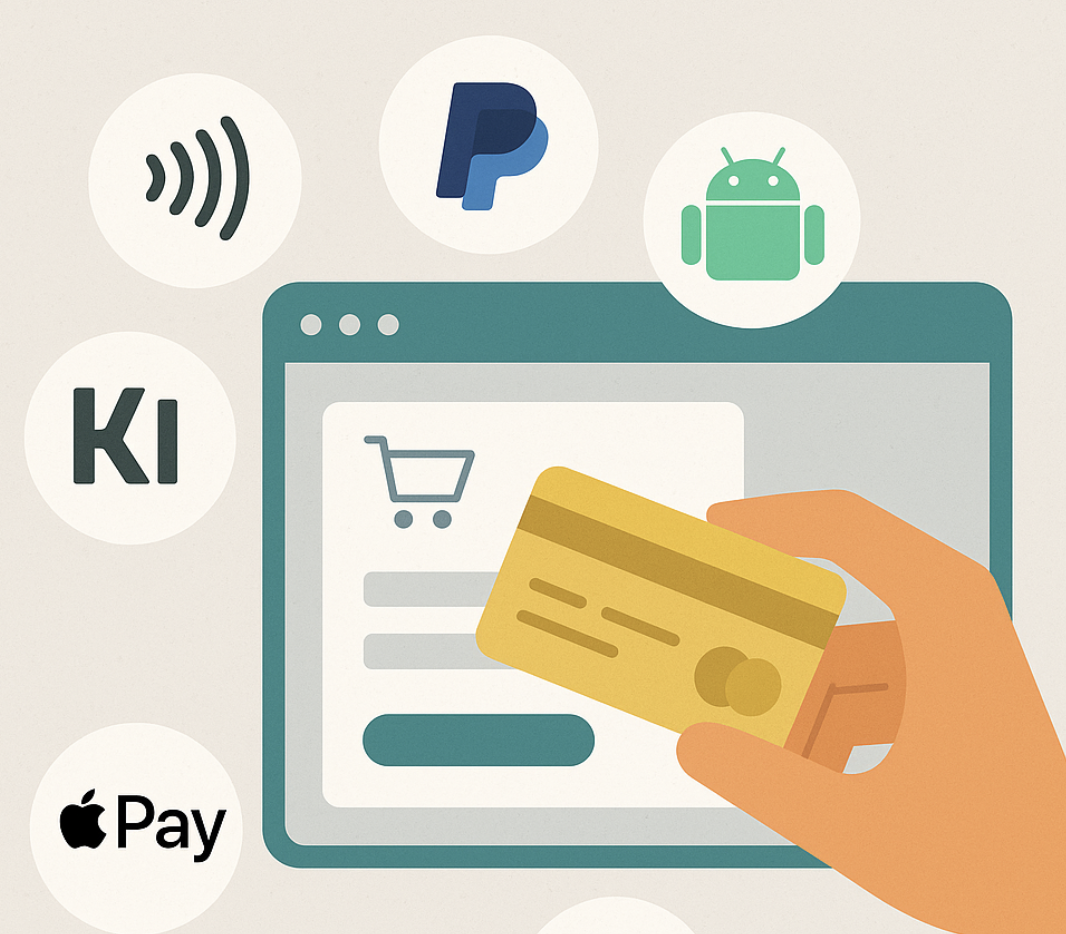As the holiday season approaches, businesses across the United States (and many farther afield that have adopted our traditions) are gearing up for the highly anticipated Golden Quarter—the peak season of holiday shopping spanning from Black Friday to Christmas. This period has long been a crucial revenue generator for B2C companies, with consumers flocking to stores and online retailers in search of the perfect gifts and hot deals for their loved ones. However, if history is any indication, the Golden Quarter is not without its challenges. One of the most pressing concerns for businesses during this time is the surge in returns, chargebacks and friendly fraud, which can cast a shadow over their year-end profits.
In this article, we’ll delve into the dynamics of chargebacks and friendly fraud during the Golden Quarter and explore why the 2023 holiday shopping season promises to be different from previous years due to a unique confluence of economic and cultural factors. We’ll also provide essential tips on how B2C businesses can best prepare themselves for what lies ahead.
The annual ‘chargeback hangover’
If you’re a business owner, you’re likely familiar with the calamity known as the “chargeback hangover.” This refers to the three-month period following the Golden Quarter where consumers file chargebacks on holiday purchases in record numbers—many times fraudulently or mistakenly. This massive surge in chargebacks hits companies like a freight train to start the new year, leaving businesses reeling and profits dwindling unnecessarily following the holidays.
Chargebacks occur when customers dispute a transaction and request a refund from their bank or credit card issuer rather than the merchant. While some chargebacks are legitimate, a growing majority of them—up to 75 percent according to Visa—are initiated mistakenly or by consumers with less-than-honorable intentions. The former scenario can result from a consumer not recognizing a billing descriptor on their credit card statement or not wanting to navigate a merchant’s customer service process, prompting them to contact their issuing bank rather than the retailer out of panic or convenience. In the latter scenario, individuals purchase products during the holiday season with the full intention of filing a chargeback afterward to recoup their money while keeping the merchandise. This deceptive tactic, known as first-party fraud or cyber shoplifting, is a pervasive problem that can spread rapidly through word-of-mouth or social media, creating a nightmare for businesses.
Why 2023 is different
Economic and cultural factors are conspiring to make the 2023 Golden Quarter unlike any other in recent memory. While economists initially predicted that 2022 would be the year when consumer spending habits returned to pre-pandemic levels, the reality has been quite different. Disposable income for the average citizen has not fully rebounded, and the specter of high inflation and rising fuel prices continues to loom large.
Studies by Deloitte cite one in four U.S. survey respondents feeling anxious about their employment situation and their purchasing intentions ‘signal weakened spending confidence.’ However, the situation has improved significantly from 2022 and even earlier this year: Deloitte’s financial well-being index was 98.3 in August 2023, up from 95.9 in July and significantly improved from a record low of 77.4 in June of 2022. Over in the UK, the Office for National Statistics (ONS) reported seven in 10 adults are spending less on non-essentials because of cost-of-living increases, but that there were small monthly increases from July to August, indicating an increase in retail spending during tough economic times.
These economic challenges have created an environment where consumers are more inclined to seek ways to stretch their money, especially during the holiday season. Purchasing luxuries may seem less justifiable when everyday expenses are on the rise. As a result, some individuals are turning to chargebacks as a means to resolve transaction disputes with a merchant, or to reclaim their money while holding onto the products they purchased. The unfortunate trend of chargeback fraud and misuse can be tempting, particularly in times of financial strain.
Are merchants (inadvertently) contributing to their own problems?
While external economic factors play a role, businesses must also acknowledge their internal processes and practices that may inadvertently contribute to their chargeback rates. During the holiday rush, many online merchants underestimate the sheer volume of traffic they’ll experience, leading to transaction disputes piling up. This backlog can frustrate customers, prompting more of them to resort to chargebacks rather than attempting to resolve the issue directly with the merchant.
Moreover, if customers perceive that the products they received do not align with what was advertised on the company’s website, they are more likely to seek refunds through chargebacks. Complex or time-consuming return processes can further discourage customers from engaging with the merchant directly, causing them to turn to their banks for chargebacks, incurring additional admin fees for the business.
Given the ongoing economic factors fueling chargebacks, it’s evident that businesses must take proactive measures to protect themselves. Implementing a multi-layered, omnichannel strategy is essential for navigating the 2023 Golden Quarter effectively.
Four tips for chargeback management
Prevention: The first line of defense against chargebacks is keeping customers satisfied. Promptly addressing customer service inquiries and maintaining open communication can prevent misunderstandings that might lead to chargebacks. Additionally, consider utilizing chargeback alert programs, such as Ethoca and Verifi (provided through Mastercard and Visa), which notifies merchants when a dispute is filed, allowing for quick resolution before chargebacks occur.
Identification: Businesses should carefully analyze the reason codes and additional transaction data accompanying chargebacks. Identifying whether the chargeback is due to merchant error, criminal fraud, or first-party misuse is crucial. Employing a multi-layered fraud prevention strategy and utilizing data analysis can help pinpoint internal issues contributing to chargebacks.
Challenge: While it may be tempting to accept chargebacks as an inevitable cost of doing business, responding proactively and timely to claims will maximize revenue recovery and help prevent future abuse and repeat errors. Engaging in the representment process, where merchants provide evidence of the validity of a contested transaction, sends a message that fraudulent behavior will not be tolerated.
Adaptation: In an era of increasing digitization, chargebacks are expected to continue rising. Businesses should adapt by effectively managing and storing data from the payment process, making it easier to prove whether first-party misuse has occurred. Detailed transaction records, including card numbers, CVVs, and delivery signatures, can be invaluable during disputes.
It’s the final countdown – time to get ready
The 2023 Golden Quarter promises to bring both opportunities and challenges for B2C businesses. While the threat of chargebacks and fraud looms large, proactive measures can help you navigate these treacherous waters effectively. Remember, you don’t have to face this alone; there are solutions on the market that offer customizable fraud mitigation solutions, allowing you to focus on serving your customers and growing your business during this critical sales period.
In conclusion, as the 2023 Golden Quarter approaches, businesses must prepare for a unique set of challenges driven by economic and cultural factors. By implementing a robust chargeback management strategy and staying adaptable, B2C companies can make the most of this pivotal season and emerge stronger on the other side.
To learn more visit: https://chargebacks911.com/.
—
About Monica Eaton
Monica Eaton is the Founder and CEO of Chargebacks911 and Fi911, as well as Chief Information Officer of Global Risk Technologies. Monica has worked tirelessly to educate merchants and financial institutions about hidden threats in the rapidly changing payment fraud landscape. Leading Chargebacks911, was founded in Tampa Bay, Florida, expanding internationally also to become Europe’s first chargeback remediation specialist to tackle the chargeback fraud problem. In ten years, Chargebacks911 has successfully protected more than 10 billion online transactions and has recovered over $1 billion in chargeback fraud.
Recognizing that the impact of chargebacks goes beyond merchants, Fi911 provides unrivaled support to financial institutions with innovative back-office management technologies. Fi911’s pioneering DisputeLab™ tool streamlines chargeback management for acquirers, automating legacy processes and standardizing methods that simplify and speed the end-to-end workflow, improving the customer experience and accountability for all stakeholders.
Monica is a passionate diversity advocate committed to developing and sharing innovative solutions that empower the global fintech space. She has earned numerous awards, distinctions and special recognitions, including the Retail Systems Awards, where she received the ‘Outstanding Individual Achievement Award’ and was named ‘Global Leader of the Year’ at the Women in IT Awards.
About Chargebacks911
Founded in 2011, Chargebacks911 is the first global company fully dedicated to remediating chargebacks and helping to eliminate first-party fraud and misuse. As industry-leading innovators, Chargebacks911 is credited with developing the most effective strategies for helping businesses manage disputes and reduce loss in various industries and sectors within the payments space.
Chargebacks911 provides comprehensive SaaS solutions that are highly scalable for managing chargebacks, handling services and fraud strategy management. The company helps decrease the negative impact of chargebacks and provides real-time API connectivity and insights, thereby improving revenue retention using data-driven technology to help ensure sustainable growth for every member of the payment channel.
Chargebacks911’s unparalleled category experience and patented Intelligence Source Detection (ISD™) technology helps identifies the true source of chargebacks, automatically remediates fraudulently filed disputes, safeguards reputations, monitors feedback 24/7 and provides insight to proactively prevent future fraud. www.chargebacks911.com
About Fi911
Fi911 supports financial institutions with innovative back-office automation technologies created specifically for banking and financial institutions. By supporting direct communications between FIs and their ecosystems, the company’s scalable payment product suite offers features that range from fast, flexible merchant onboarding to highly transparent and feature-rich client portals.
Fi911’s proprietary DisputeLab™ helps resolve chargeback disputes faster and more efficiently by utilizing next-generation technology that leverages a robust rule engine and highly scalable microservices specifically designed to optimize each step in the dispute cycle. The company’s unified platform also provides threat detection, reconciliation, risk management tools, and the ability to generate commissions and ISO pay-outs directly through the system.
Established by the dispute experts at Chargebacks911®, Fi911 offers global reach and expertise, and customized training and support from recognized industry leaders. https://fi911.com/






